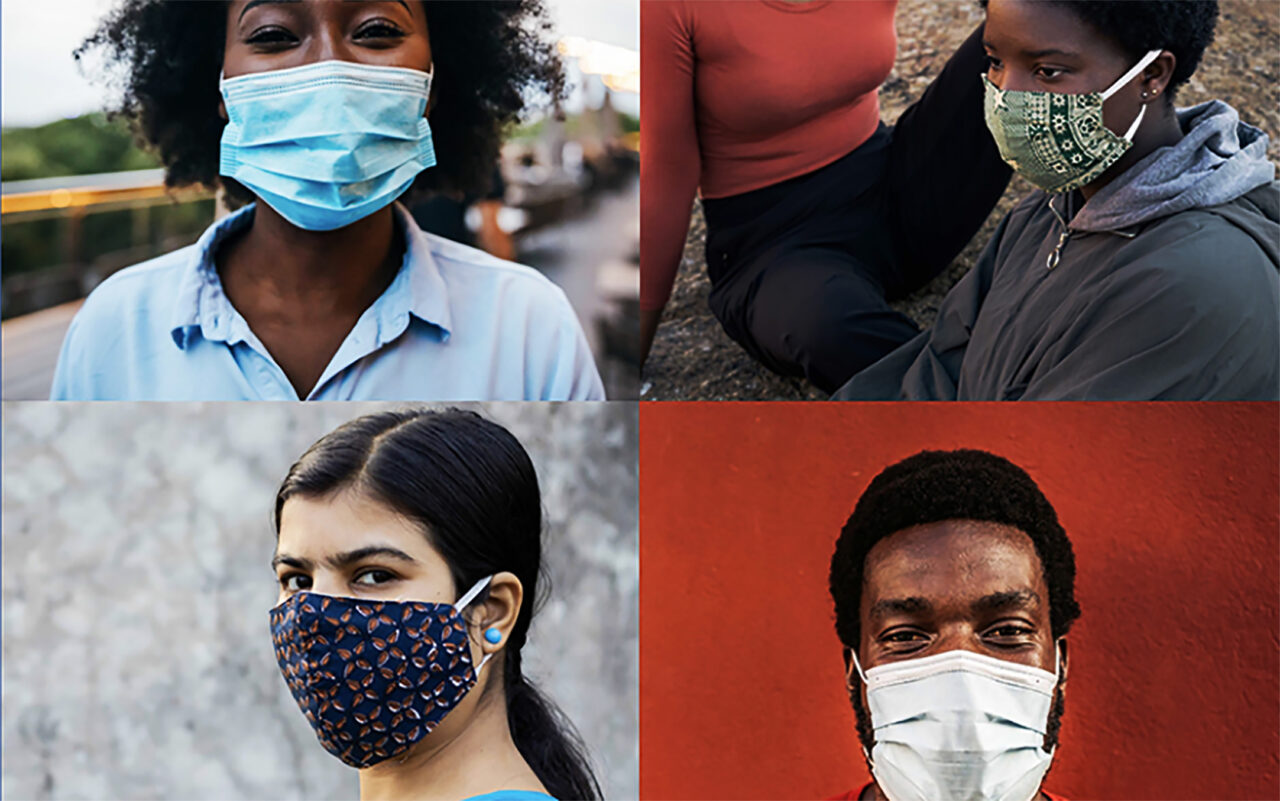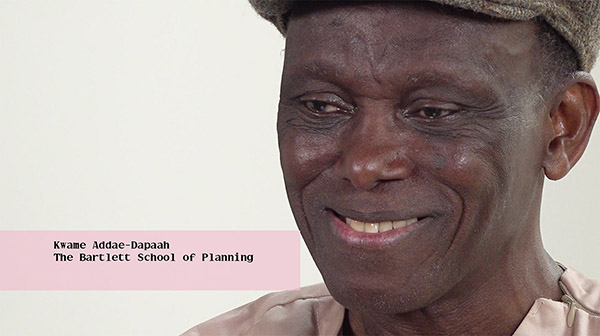Lakshmi Priya Rajendran
Everyday Stories of Climate Change
Dr Lakshmi Priya Rajendran shares Everyday Stories of Climate Change Comic, which offers a nuanced exploration of the real-life impact of climate change on families around the world.
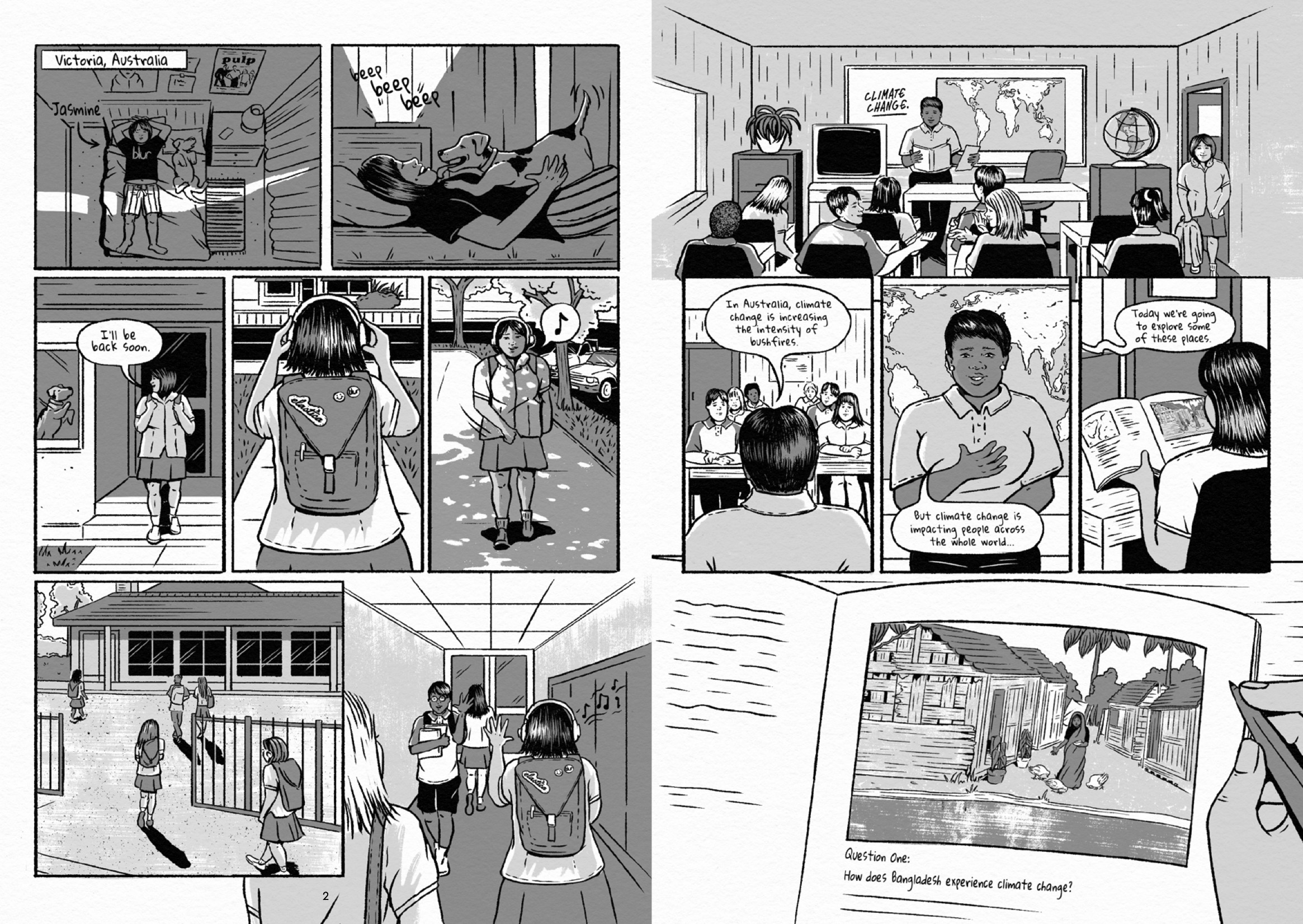
Pages from Everyday Stories of Climate Change Comic
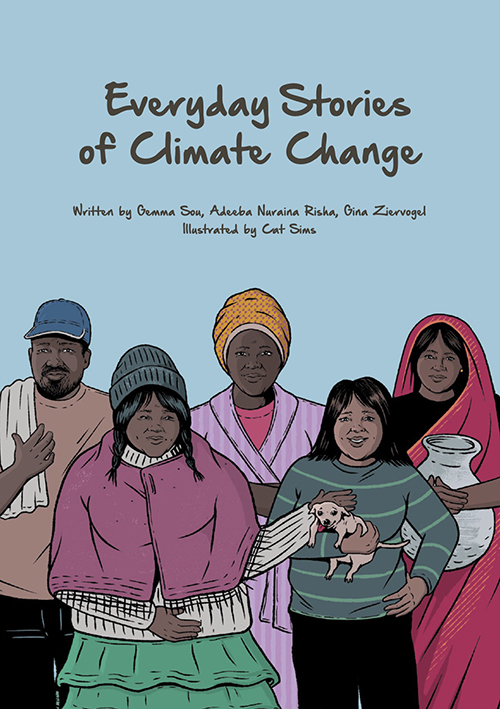
Cover of Everyday Stories of Climate Change Comic
A window into the lived experiences of communities grappling with environmental change
“Everyday Stories of Climate Change” comic offers a nuanced exploration of the real-life impacts of climate change on families around the world. Based on research by Adeeba Nuraina Risha (BRAC University), Gina Ziervogel (University of Cape Town) & Gemma Sou (RMIT University) and llustrated by Cat Sims and in association with the Geography Teachers Association of Victoria, the comic takes readers on a journey through six countries—Australia, Bangladesh, South Africa, Bolivia, Puerto Rico, and Barbuda—to uncover the diverse ways in which climate change shapes daily lives.
From the intimate domestic routines disrupted by sea-level rise in Bangladesh to the complex challenges of food security in Puerto Rico following Hurricane Maria, each story presented in the comic provides a window into the lived experiences of communities grappling with environmental change. Through vivid imagery and narratives, readers are invited to witness the resilience and resourcefulness of families as they navigate the ever-shifting landscape of climate uncertainty. Instead of reducing individuals to mere statistics or stereotypes, “Everyday Stories of Climate Change” offers developed characters with distinct personalities and backgrounds. By amplifying the voices of those often marginalised in mainstream narratives, the comic fosters a deeper understanding of the complex interplay between climate change, social inequality, and human agency.
“Everyday Stories of Climate Change” also serves as a powerful pedagogical tool, engaging students with visual learning materials that encourage critical analysis and reflection. readers are invited to join a global conversation about resilience, adaptation, and hope in the face of environmental adversity.
The decision to use a comic format to illustrate this research is driven by several key reasons. By portraying characters as three-dimensional individuals with unique personalities and emotions, comics provide a more nuanced and respectful portrayal of the diverse communities affected by climate change. Comics also offer a highly engaging and accessible medium for conveying complex research findings. Through a combination of visuals and text, comics communicate information in a way that is informative and accessible to a wider audience. Additionally, comics allow for the exploration of temporal dimensions, enabling researchers to depict past experiences, present challenges, and future aspirations in a single narrative.
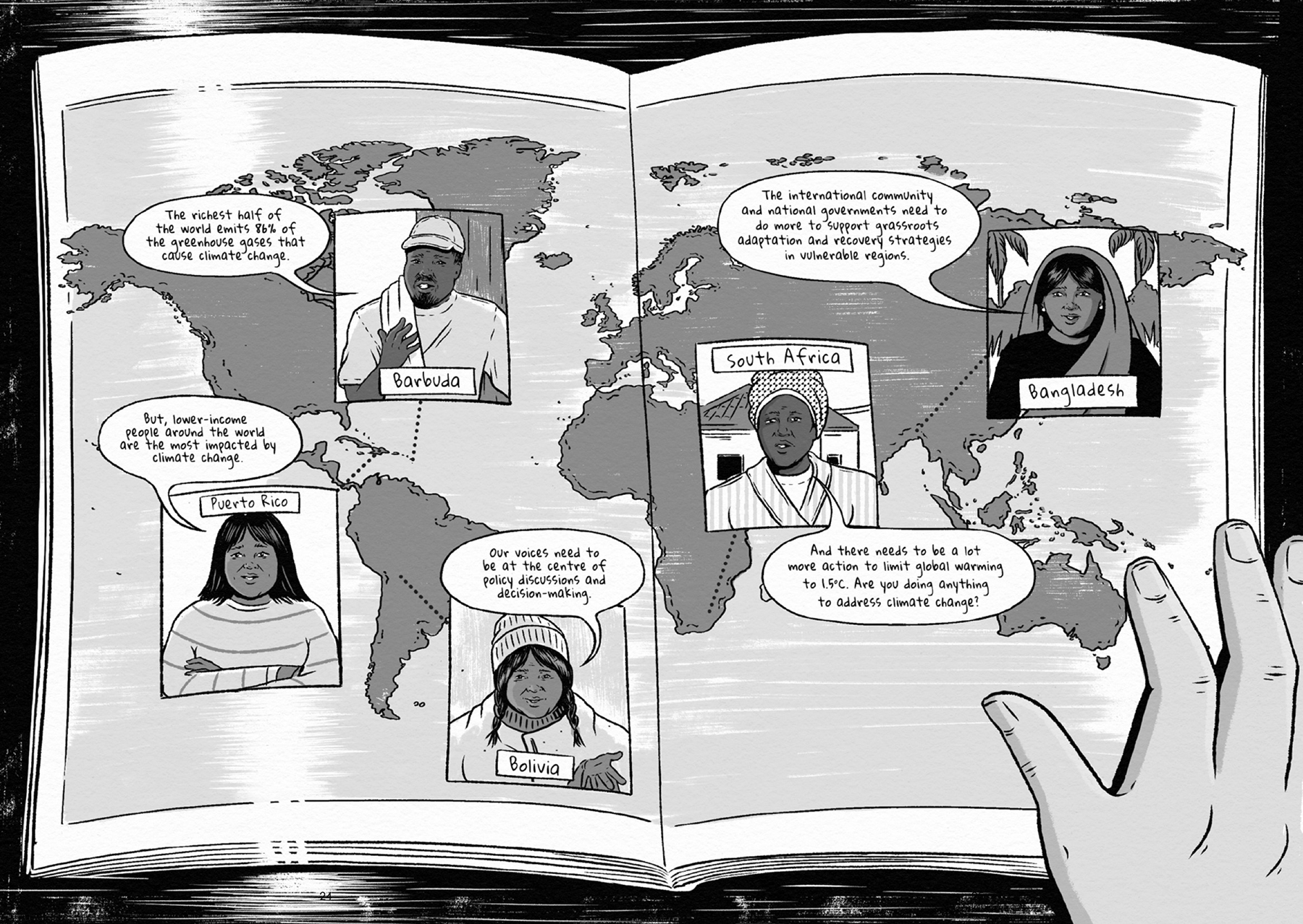
Pages from Everyday Stories of Climate Change Comic
WHO
Lakshmi Priya Rajendran
LABORATORY
A growing archive focusing on work created by students and staff across the Bartlett
view all